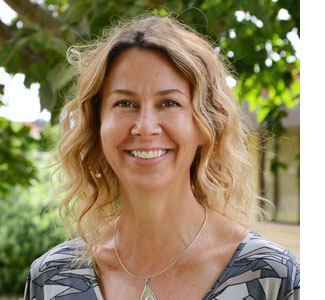Office of the Vice Chancellor for Academic Affairs

Frankie Harriss, VCAA
Vice Chancellor for Academic Affairs, Kaua'i CC
Phone: (808) 245-8203
Email: frankieh@hawaii.edu
Frankie has 29 years of experience as an educator, 29 years with community colleges, 14 years in developing countries, 16 years as a faculty member, 12 years of community college leadership, and 11 years at the executive level. Her international experience includes the Federated States of Micronesia and the Republic of the Marshall Islands.
Frankie holds a doctorate of education in higher education from the University of Liverpool, a master of science in botany from the University of South Florida, Tampa, and a bachelor of science in biological sciences from San Diego State University.
The primary purpose of the Office of the Vice Chancellor for Academic Affairs is to supervise and coordinate all functions concerned with credit instruction, academic support services, and extramural grants as they relate to the College's credit program.
The unit is responsible for ensuring instructional programs are consistent with the Strategic Plan of the College, reviewing new program proposals, evaluating program outcomes, and recommending personnel actions such as hiring, promotion, tenure, etc. The VCAA is the key member of the Chancellor's executive leadership team and is the academic affairs (instruction) area's chief operating officer. She is charged with providing leadership and coordination on behalf of the campus in planning, developing, organizing, directing, and evaluating all instructional programs, policies, procedures, and guidelines.
- Ka Papa Hana Holomua Academic Affairs Plan 2021-2026 (pdf)
- Ka Papa Hana Holomua Academic Affairs Plan 2021-2026 (Abbreviated Version pdf)
Ka Papa Hana Holomua Plan Evaluation Reports
- Ka Papa Hana Holomua Plan Evaluation Report One (pdf)
- Ka Papa Hana Holomua Plan Evaluation Report Two (pdf)
Academic Affairs Core Values
and Principles of Best Practices ‘ohana
| ‘āina | ola | ha‘aha‘a |
|
|
|
| ahonui | nānā i ke kumu | aloha |
|
|
|
